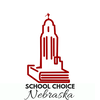|
Charter schools strengthen the entire public school system, especially in regards to accountability, parental involvement, and the achievement gap. In exchange for flexibility and autonomy, charter schools are held to a higher degree of accountability. They must abide by state standards, and they must have a fair and open admissions process. Most of all, they’re held to the highest level of accountability, which is consumer demand. If a school isn’t performing well enough to attract students, it receives no funding and ceases to operate. The love and hopes parents have for their children ensures that charter schools are held to high standards because parents don’t leave their kids in subpar situations if they have other options. According to a study by researchers Henderson and Berla (1994), "the most accurate predictor of a student's achievement in school is not income or social status but the extent to which that student's family is able to create a home environment that encourages learning, express high (but not unrealistic) expectations for their children's achievement and future careers, and become involved in their children's education at school and in the community.” It’s a big decision to choose a school for your children, and when parents have the option of several different schools instead of just the school down the street, they become heavily involved. I know of nothing that gets parents more involved in their kids’ educations than giving those parents options. Options instigate research, and research sparks curiosity. Soon parents are debating the merits of Singapore math versus Saxon math and visiting classrooms at various schools to discover which learning environment will be the most stimulating for each of their children. But the situation is quite different in a system in which parents have no choices. A monopoly in the local grocery industry would not be tolerated by consumers, especially if the grocers cut back on their food inventory and started selling auto parts, and yet the K-12 education monopoly, which is funded by our tax dollars, is using precious education time for nonacademic purposes. Why should only the wealthiest members of a community have the option of sending their children to schools that don’t undermine their values and educational priorities? Charter schools not only offer options to parents and students but also to teachers, too. Charter schools provide teachers with workplaces where they’re free to focus their efforts and energy on teaching the academic subject they’re passionate about. When the teachers are enthusiastic and excited about their jobs, students catch the vision that learning is a worthy lifelong pursuit. Catching that vision may be part of the reason that charter schools have proven to be so effective at closing the achievement gap in recent years. Closing this gap is the civil rights issue of our time, and fortunately, charter schools are increasingly available across the country to help with this problem. In Nebraska, our NeSa testing in 2014 showed quite an achievement gap, as you can see in the following table: From these results, it seems that the traditional public school system is better at reaching some groups of students than others. Public charter schools in other parts of the country, however, have developed educational models that are producing spectacular results.
For example, Achievement First Public Charter Schools in New York, Connecticut, and Rhode Island, have consistently produced impressive results. After four years in an Achievement First school, 95% of minority students achieve proficiency in core subjects—that’s more than double our scores in some areas. Margaret Raymond, a research fellow at Stanford’s Hoover Institution, found in a comprehensive research study that “charter schools are benefiting low-income, disadvantaged, and special education students.” I’m hopeful that the achievement gap in Nebraska will narrow and then close as public charter schools bring options to parents and students that we don’t currently have. The children of Nebraska don’t have a well-funded union like the NSEA to represent their interests, but they do have their parents. And we parents must look beyond the political action committees and the power they represent and see our children who are Nebraska’s future. We’re the ones who have nursed them through bouts of anxiety and helped them struggle through long division. We have watched the wonder in our kids eyes as a science experiment has sparked new curiosity, and we’ve seen them deflated when they struggle with their math facts. It's time to demand the educational options available in 43 other states. It's time for school choice for Nebraska.
0 Comments
Your comment will be posted after it is approved.
Leave a Reply. |
|



 RSS Feed
RSS Feed